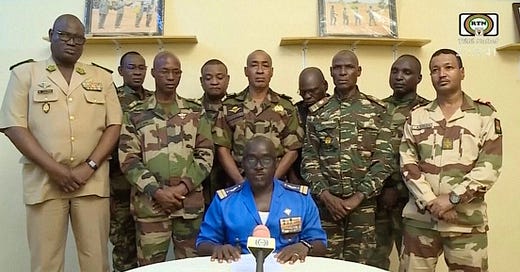The coup d’état in Niger
The August 8 Cuban news analysis television program Mesa Redonda featured Rodobaldo Isasi, a researcher at the Center for Research on International Politics in Havana, who discussed the July 26, 2023 coup d’état in Niger. Isasi maintained that tens of thousands of people have taken to the streets in support of the military and in support of the coup, which has occurred as a consequence of the rise of terrorism in the region and the generally poor economic situation provoked by drought and pandemics. The neighboring West African countries of Burkina Faso and Mali have expressed support for the coup.
Isasi notes that African states and regional organizations are divided, with some calling for a reinstatement of the deposed president, and others rejecting foreign interference in the internal affairs of Niger. The interests of France, the ex-colonial power of the region, and the United States …



